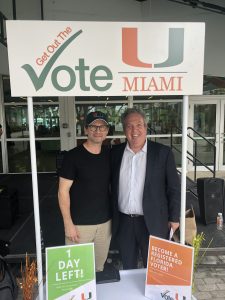FINRA Suspends Francisco Faraco For Forging Signatures
Francisco Jose Faraco (CRD #5095972) is a former registered broker and investment advisor whose last employer was Morgan Stanley (CRD #149777) of New York, NY. His previous employers include J.P. Morgan Securities LLC (CRD #79), also of New York, NY, Santander Securities (CRD #41791) and Merrill Lynch, Pierce, Fenner & Smith Incorporated (CRD #7691) both of Miami, FL. No other employment information is available, and he is not currently registered with any FINRA member firm. He has been in the industry since 2006.
 Faraco is the subject of three disclosures. Two are for one specific incident.
Faraco is the subject of three disclosures. Two are for one specific incident.
In January of 2016, Faraco allegedly began assisting an institutional customer obtain a $15M loan from Morgan Stanley Private Bank. In the course of applying, he attempted to keep the process moving after two roadblocks—an expired passport for one individual, and forging two signatures on two assurance documents for collateral. Faraco felt the documents were duplicates. Those signatures were representatives of affiliated companies. The bank approved the loan, and the forgeries were discovered only after one of the affiliates complained.
 Securities Arbitration Lawyers Blog
Securities Arbitration Lawyers Blog


 One company that began dealing with acquiring and leasing land for growing marijuana is CannaBusiness Group out of California. CannaBusiness was founded in 1985, and became a publicly traded company (
One company that began dealing with acquiring and leasing land for growing marijuana is CannaBusiness Group out of California. CannaBusiness was founded in 1985, and became a publicly traded company ( This week, the
This week, the 
